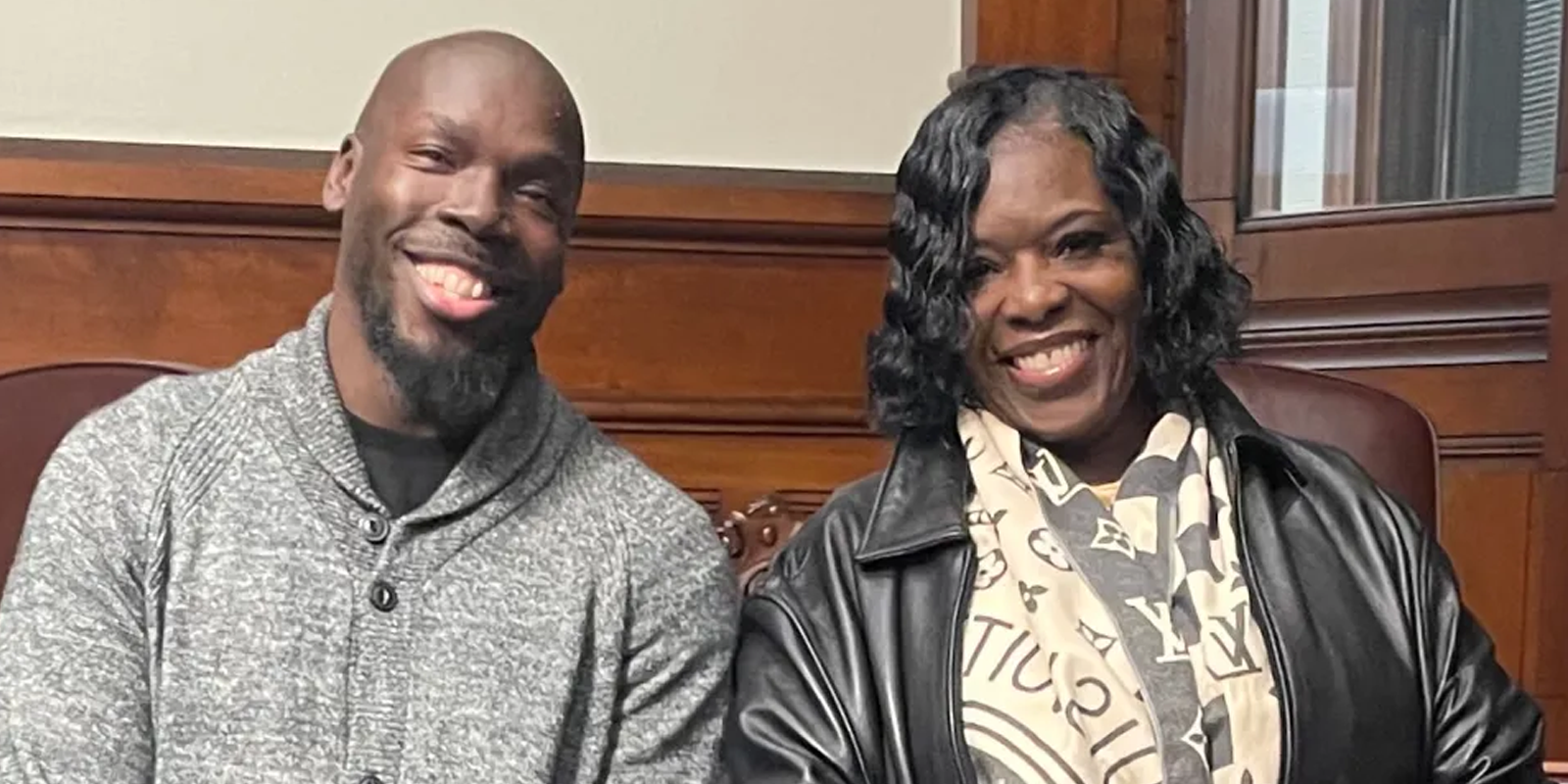ROCHESTER, N.Y. – Sandra Beasley and Deverin Dillon graduated from the Rochester City School District, returned to work there as school security officers (SSOs) and are committed to improving the lives of students.
That commitment came shining through when Beasley and Dillon — both members of Board of Education Non-Teaching Employees (BENTE) Local 2419 (AFSCME Council 66) — risked their lives to save the lives of students when a gunman opened fire near the entrance to Benjamin Franklin High School on Jan. 5.
The suspect chased a student to the school and fired shots through Franklin High’s front doors, trapping three students as they crouched in the doorway. Hearing the shots, Beasley and Dillon quickly opened the doors, grabbed the students and pulled them inside to safety. The SSOs then called 911 and started lockout procedures. Despite not knowing the suspect’s whereabouts, Dillon ran outside to render aid to anyone who was injured, but fortunately no one was shot.
The Rochester City Council recognized both Beasley and Dillon – who’s widely known as DL – at its Feb. 21 meeting. Councilmembers thanked the SSOs for their “quick thinking and courageous actions, which ensured the safety of students” and awarded them certificates of recognition.
Beasley and Dillon gave speeches, underscoring how much they love their jobs and how they are committed to their work.
“I understand that they’re your babies, but when they come into that building, when they come into Franklin, they’re our babies and we’re not going to let anything happen to our babies,” Beasley said.
“When your kids come into our building, we treat your kids like our kids. I’d do it again if I had to,” Dillon said, according to one news report.
Here is a local news clip in which Beasley and Dillon discuss what happened and related topics.
Beasley graduated from Franklin High in 1988 and started working for Rochester schools 15 years ago as an SSO. Since coming to work at her alma mater in 2020, she has been spending a lot of time building relationships with students.
They need to be “talked to, loved and respected. Adults want respect. Kids want that too,” she said. “Kids just need love and someone to talk to.”
When a student has a bad day, she comforts them. She brings in food, winter coats, clothing and shoes — some donated by her own 15-year-old daughter — to needy students. In return, the students hug her and show off the items she donates. Beasley also has “tough love” conversations with students when they need it. Some even call her their second mom and she, in turn, refers to all students as “my babies.”
So does Dillon – or DL, as he is affectionately known. A graduate of East High School, he has worked for Rochester public schools since 2010.
“We come to school every day not knowing what’s going to happen to our babies,” Dillon said. “A lot of our babies are hurting and have mental health issues.”
His two favorite school days are prom and graduation. He loves seeing his students all dressed up in their best attire for prom. He feels proud and considers it a “blessing” to watch students who’ve struggled graduate from high school. He is DL, the “school dad,” and families tell him how much he has improved their children’s lives.
Asked what improvements they want to see in Rochester public schools, Beasley and Dillon focus on “their babies” first, calling for more support services, including mental health counseling and life skills programs; and additional job-training programs like cosmetology and the trades.
Only then do they bring up their own needs. They want more funds to be spent on school security, including higher pay to recruit and retain highly qualified SSOs. The starting pay rate for SSOs is $19.44 per hour, with many open positions across the district. They would like to see other security measures implemented, including cameras around schools and alarms on doors.
Dillon said SSOs often go above and beyond the job title. We act as “uncles, fathers, parents. We counsel,” he said, adding that SSOs are first responders and deserve respect.
“We run towards problems,” he said. “We don’t run away.”
